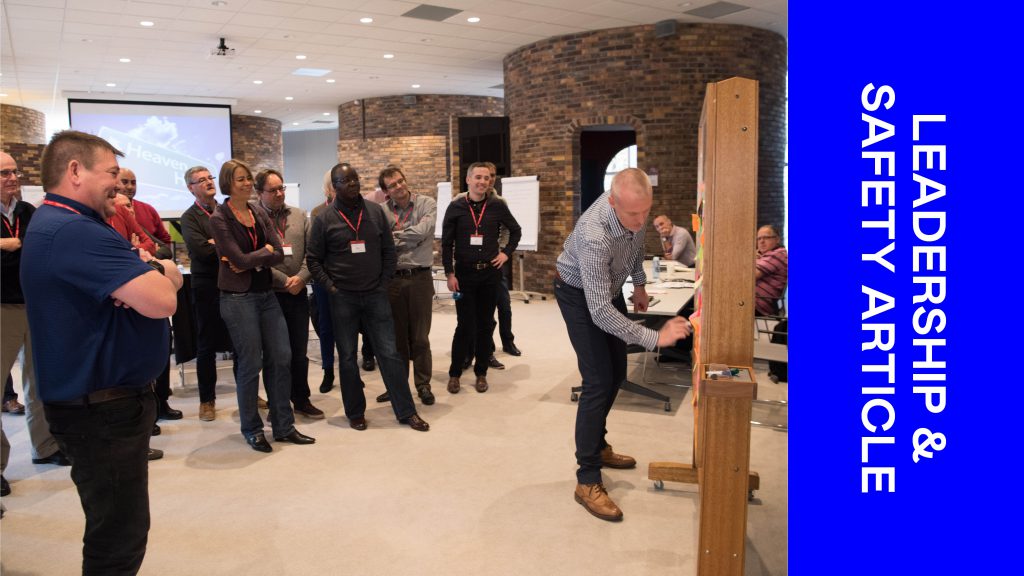Health and Safety: Leading the Evolution” is the topic of our September 2020 article published in IOSH magazine with insights from CEDEP’s Leadership and Safety Culture programme director, Dr Andrew Sharman and co-developer of the programme, Malcolm Staves, Group Health and Safety Director for L’Oréal.
Covid-19 has propelled the necessity of OSH into the organizational spotlight and shifts the evolution of cultural change into high gear. But what does evolution look like in practice?
For more information about our Leadership and Safety Culture programmes, please contact: muriel.pailleux@cedep.fr and click here for the programme description.
September 2020
HEALTH AND SAFETY: LEADING THE EVOLUTION
Never before have Health and Safety professionals been more at the center of the global stage. Covid-19 has thrust the necessity of OSH into the organizational spotlight. While in recent years, Health and Safety philosophies have lauded holistic cultural change and leadership of care rather than compliance, the pandemic shifts this evolution into high gear.
“I think Covid has raised the profile of Health and Safety,” says Malcolm Staves, Group Health and Safety Director for L’Oreal. “The biggest piece of learning for us globally was that we needed to be prepared to change, because we were learning new things about the virus all the time. It was ever-changing.”
Like Staves, leaders in the field are focused on maintaining flexibility and speed to anticipate the future of health for organizations. Though Covid has put workers in peril, these life-or-death stakes aren’t new in the OSH world. To date, Covid-19 has killed over 690,000 people globally—a staggering statistic. Yet, 2.78 million people died last year from workplace-related accidents and disease. This data doesn’t minimize the virus, but rather emphasizes that OSH professionals should be our foremost experts on evolving the world of work to a safer and healthier model.
“The language of evolution has been part of my vernacular for the last few years,” says Dr. Andrew Sharman, organizational psychologist and author of the global bestseller From Accidents to Zero. “Right now, businesses have turned to OSH professionals and said: ‘What do we need to do? How do we need to think about the language of risk assessment and disease and occupational health?’ Suddenly, these phrases come into the language of organizations. These are the words that OSH professionals have been emphasizing for a long time.”
What does evolution look like in practice?
At L’Oreal, it meant a quick pivot: “We realized quickly that manufacturing sanitizer was like manufacturing perfumes,” says Staves. “In some sites, we were using ethanol as a base, so we could convert.” While the approval process normally takes two years, the company managed to fast-track it within four weeks. “That’s what allowed us to continue business in Operations.”
In the past, OSH professionals were often considered box-checkers, but in the future, they are poised to be the trailblazers. Organizations like CEDEP, a global executive education club, offer programmes to better prepare industry leaders for this future. By moving away from the old compliance models, CEDEP’s Leadership and Safety Culture programme—co-developed by Staves and directed by Dr. Sharman—offers a focus on human performance, wellbeing and risk literacy. Their humanist philosophy ripples not just through CEDEP programmes, but through their membership organizations.
“We tend to be very rigid historically with ‘the rules.’ I think safety people need to be more in touch with psychology.” Staves mentions nudge theory, the idea that indirect suggestions and choice architecture influence behaviour and decision making.
“Nudge theory is about ‘How do I influence your subconscious, so that you make the right decision at the right time?’ This needs to be in the toolbox of the OSH professional—not just understanding risk, but understanding people.”
“Engaging, empowering and enabling workers to work safely is the crucial part,” says Sharman.
“Because the OSH people are now the ones with the answers—they know what to do. This has never happened before. Now, it’s happening in every country around the world. OSH people are trusted advisors, and this is a brilliant position.”
“Now is the time to act, step forwardand lead the evolution.”
